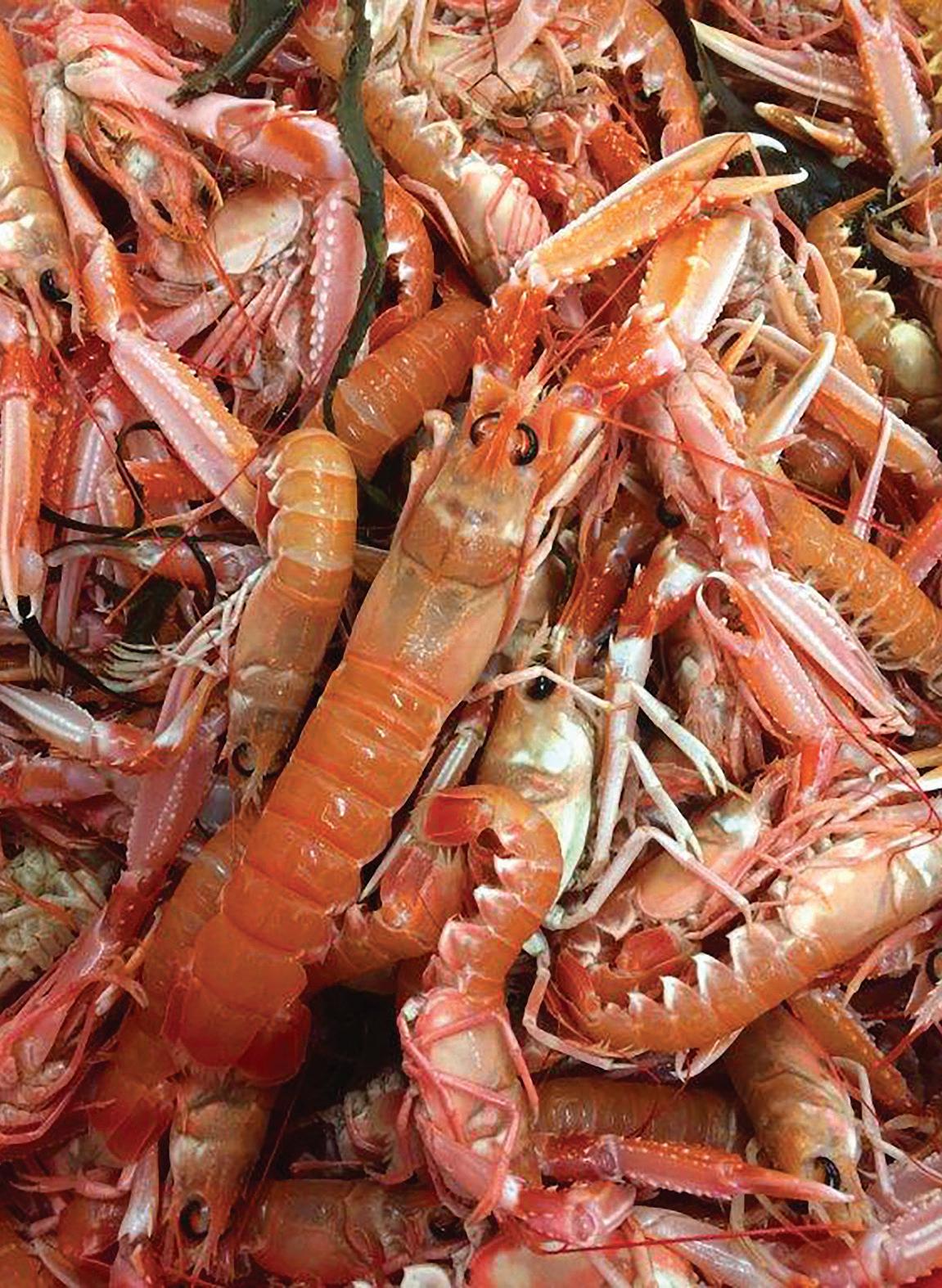
2 minute read
MARK MCCAUGHAN: Northern Ireland’s perspective on COVID
Northern Ireland’s perspective on COVID
Mark McCaughan, Chief Fisheries Officer, Department of Agriculture, Environment and Rural Affairs, Northern Ireland.
Advertisement
It has been a difficult year for all seafood producers in Northern Ireland. The initial difficulties marketing scallops to the continent was seen as a blip, but this has persisted more than a year after the French hospitality sector first closed in early 2020.
The most significant impacts locally were felt when the United Kingdom went into initial lockdown, and with the closure of pubs and restaurants, the market for scampi shrank immediately. In addition, processors had no requirement for Nephrops tails with both product and raw material backing up in cold store within two weeks. Consequently, the majority of fishing boats at Ardglass, Portavogie and Kilkeel remained alongside.
Although some export markets for whole langoustine remained, prices weakened. Against this backdrop, the Department of Agriculture, Environment and Rural Affairs Minister, Edwin Poots, was the first in the UK to announce financial aid to the catching sector. As a result, in the past thirteen months, DAERA made payments of £2,596,739 to 283 vessels to cover compulsory fixed costs.
The aquaculture sector has had similar issues. Demand for trout slumped during 2020 following the lockdown impact on hospitality, and there have been marketing problems for oyster producers.
Financial support schemes have been devised to support a proportion of income foregone in MarchMay and SeptemberDecember compared to average income recorded in the previous three years’ certified accounts. As a result, £127,000 had been provided to fifteen businesses at the time of writing, and work continues in this area.
eu exit
After some false dawns, the Brexit transition period ended on December 31st 2020. However, there remain various unresolved difficulties for the fishing industry, including a lack of reciprocal access to fishing in both the 0-6 mile area and further uncertainty about the 6-12 area.
Ministers Poots and McConalogue discussed industry difficulties, and subsequently, DAFM extended the list of ports where UK registered vessels can land in the Republic of Ireland, which is helpful. The Northern Ireland Protocol has assisted the flow of fishery product into the EU, but there are new processes for product entering Northern Ireland from Great Britain under IUU Regulation as either raw material, product of animal origin, or a foodstuff.
DAERA has undertaken a new inspection role at Northern Ireland Points of Entry consistent with the rules for products entering the EU regulatory area. However, carriers have had to adjust to new processes. By contrast, products have moved from Northern Ireland to the EU without problems. Movements of live fish into Northern Ireland from Great Britain now have compulsory inspections on arrival consistent with importing any such material into the EU from a third country. These arrivals are relatively small and infrequent in number, and to date, we have successfully handled industry requests. Discussions with the EU Commission continue about the future relationship with the UK and application of the rules. Northern Ireland is in a somewhat different position to the rest of the UK, given the existence of the NI Protocol, and changes continue. However, we are confident that the industry can adapt.





